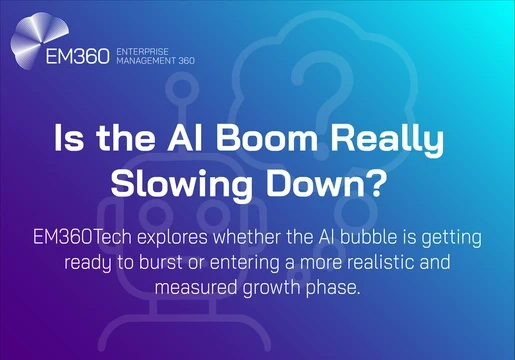It’s important for businesses to comply with ever-evolving industry and data regulations and protect personal data to maintain trust and mitigate risk. Organisations must also be prepared to handle escalating data privacy requests from customers and employees, including data subject access requests (DSARs). Mishandling customer and employee data – and failing to respond to DSARs – can incur substantial regulatory fines and reputational damage, negatively impacting organisations.

GDPR compliance states that everyone has a right to access their personal data, so organisations must be prepared to disclose all personal data held on a customer or an employee when asked. On receiving a DSAR, organisations have just 30 days to process and send a response directly to the data subject, or face a significant penalty. When performed manually, DSARs can cost organisations £3,000-£6,000 for each request. As more and more people become aware and engaged in the right to access their personal data, organisations are set to receive an increasing number of DSARs – mounting pressure on HR and compliance teams.
How organisations relieve this burden on their DSAR processing teams starts with robust data governance combined with the acceleration of automated processing. When an organisation uses automated, AI-powered tools to tackle DSARs and compliance processes, it not only streamlines its approach to compliance, but also mitigates risk. HR and compliance teams can deliver accurate, fast responses to data subjects on time, meeting the ICO’s 30-day deadline, while protecting customer and employee confidence in the organisation.
Using automation to strengthen data protection
The key to succeeding in regulatory compliance is to stay up-to-date, and even one step ahead, of new regulatory frameworks that control how organisations store, access, and use personal data. A common approach to compliance is to turn regulations into a set of business rules that dictate how data is managed, shared, and safeguarded. However, all too often, organisations only discover how stringently these rules have been adopted when faced with an audit.
If an employee cuts corners or circumvents best-practice business rules to save time, or accidentally exposes personal data, the organisation is at risk of data breach. Although an audit may reveal these scenarios, it could be too late for effective mitigating action. It’s far better to put advanced AI technology in place to automate compliance processes, and prevent the costly consequences of personal error.
Organisations can also come up against several problems if the wrong people have access to sensitive data. And it can be disastrous when data is saved somewhere it shouldn’t be stored. With advanced technology in place, such as an Insight Engine, data from across the business is classified and enriched to determine whether it’s sensitive information, adding another automated layer of data governance. Insight Engines also apply a risk profile level to documents that contain personal information, alerting compliance teams when access permissions need reviewing.
How to manage mounting DSARs
In addition to DSARs, GDPR grants everyone the right to be forgotten (RTBF). This takes DSARs one step further. Not only can employees and customers request access to a copy of their personal data, but they can also request that all their personal data records are deleted within 30 days. Again, when organisations receive sporadic DSAR or RTBF requests, manual processing is often considered sufficient. But as discourse around data privacy amplifies, regulations are set to become a lot stricter. Since July 2022, tech giant Apple’s App Store enables customers to delete their accounts and all respective personal data at the touch of a button. This signals a trend towards heightened data privacy regulations, and for smart organisations to adopt transparent personal data protection measures.
Organisations ahead of the game are already automating compliance processing to readily meet the influx of data privacy requests, alleviating pressure on their compliance and HR teams and avoiding potential late disclosure penalties from the ICO. These organisations have adopted advanced search and discovery software solutions to automate DSARs and RTBF processing for errorless and secure disclosure responses at scale.
Interconnecting data for advanced insights
Streamlined, automated compliance processes begin with discoverable data. Hidden data and information pose a huge risk to compliance and HR teams, and makes the compliance process extremely time consuming. Imagine the amount of personal data a large retailer stores on its customers, spread across assorted order management systems, live chat applications, email, text, social media platforms, CRMs, and recorded customer service calls. Or large organisations housing employee personal data across various HR systems, SharePoint sites, and employment contracts. When this unstructured data and information is stored in an undiscoverable state, discovering and accessing it to process DSARs and RTBF requests becomes an arduous manual task.
However, when organisations use an insight engine, this challenge is easily avoided. Harnessing advanced technology, an insight engine crawls all these systems and applications to uncover hidden ‘dark data’, classifying and enriching every piece of data it discovers. This brings an organisation’s entire data universe under one roof and makes everything visible. For example, Named Entity Recognition tags people, places, and business names to create a data set; clustering algorithms determine the nature of all data; Natural Language Processing intelligently identifies topics; and pattern matching finds similar data, like email addresses, National Insurance numbers, phone numbers, and postcodes. These classification and enrichment stages reduce the complexity of dealing with data, making data privacy processing fast, accurate, and reliable.
The benefits of interconnecting data and information across an organisation are not limited to accelerating and streamlining data privacy processes, such as those relating to DSARs and RTBFs. By making the right data available to the right employees at the right time, organisations also unlock the huge potential value of their unstructured data sources. When all data and information are structured and visible, employees across the business can glean previously undiscovered business insights that drive real business value.







Comments ( 0 )